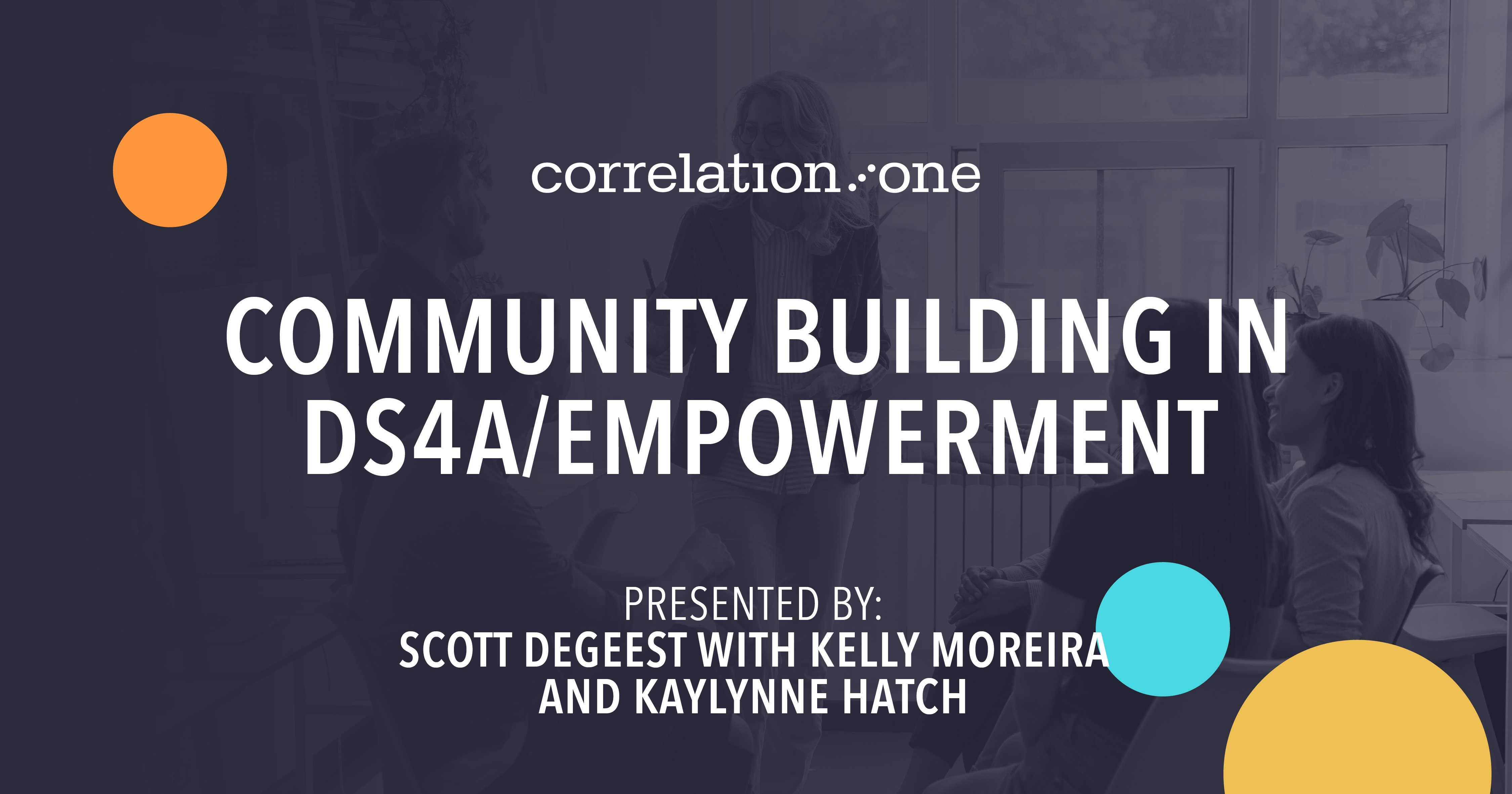Community Building in Data Science for All/Empowerment
Previous DS4A/Empowerment teaching assistants and graduates of DS4A/Empowerment discuss community building and maintaining networks post-program.

“Organizations spent tons of money on software that gave them numbers and dashboards with no context. And no way to measure the community’s impact on a business.”
–Arjay Ruggles, HomeRoom founder
Recently, my colleague Arjay Ruggles posted a thought-provoking thread about the value, challenges, and impact of building a community. His post drove me to reflect on my own experiences working to build a community for the Data Science for All / Empowerment program.
As a person dedicated to building a community, I understood the point Arjay sought to make. As a data scientist, I struggle with the challenge of quantifying the value the community brings to the DS4A Empowerment program.
Over the past eighteen months, our core team of DS4A community managers – Kaylynne Hatch, Kelly Moreira, and Scott DeGeest – have been diligently working with program manager Robert Rush to build out the community program for the alumni of the Data Science For All programs. Below, the community managers and I talked about the surprises we encountered, the experiences we sought to cultivate, and the pride we felt in the work we did.
Surprises
Kelly highlighted the difficulties of staying in touch post-graduation. A big part of community building for remote cohorts stems from reliable centers of communication, and some of that was challenging as the second cohort of DS4A moved back and forth between using Slack and Discord as primary modes of communication.
Kaylynne noted that despite how incredible the alumni are, the high degree of loyalty and camaraderie each cohort of fellows feels, and the eagerness of each cohort to retain their connections still surprises her. Kaylynne’s unique experience – she has been involved with DS4A since the first cohort – has given her insights into how transitions across different platforms have impacted communication. She noted that each time a transition happened alumni fellows have been patient as our community has migrated in search of a durable home. Kaylynne also contextualized our process in respect to alumni engagement programs at university: our team has been able to keep enthusiasm alive far above what a typical university can do.
Scott’s biggest surprises came from the unique opportunities to connect fellows from across cohorts. At first, he was pleasantly surprised to find ways to connect fellows from different cohorts based on their common interests. For example, watching two data science fellows who were deeply interested in music analytics connect was exciting. That said, as Scott continued to build connections, his biggest surprise was a common throughline between fellows in terms of their goals, passions, and visions around helping each other excel and building spaces where fellows were able to feel included and part of something big and impactful.
Experiences
Kaylynne talked about the uniqueness of each cohort’s vibe. She noted that for her, each cohort develops its own unique set of leaders, motivators, humorists, and tutors. Further, each cohort has different peaks related to different affinity groups and different locations. By the end of each cohort, there was a sense of familiarity that emerged from going through something challenging together and leaning on each other to do it.
That hard-won feeling from a DS4A cohort requires careful maintenance. Even as the intensity of that experience fades, the degree of connection remained as Kaylynne wrote references, recommendations, and introductions for DS4A alumni and had the same done for her.
Kelly noted that the feeling of security she wants to build is important. If fellows get laid off? No problem. If a fellow has trouble finding work? No big. She is working to create a community that has each other’s backs and will help each of us help ourselves on the next steps of our journeys. Kelly also pointed out the value of real life meetups and the work she wants to do to integrate the virtual and in-person components of the community we are building.
For Scott, the experience of community building has been about the phrase “lifting as we climb and climbing as we lift.” Scott had often heard the “lift as you climb” from entrepreneurs and other data scientists he respected. That said, he felt like there was more to do and more nuance required.
One of the best experiences of being a community manager for Scott has been that dual process of both lifting up other fellows as well as climbing and learning from his experiences connecting with other alumni fellows. In the process of helping others – the lift – we increase our own bandwidth and skills – the climb.
Pride
Kaylynne described her pride in the behind-the-science infrastructure work she has done. She was a big part of building out the Discord server that was a big part of the community’s evolution. She pointed out how that work has helped her learn about building virtual spaces for online communities. She also expressed her pride in the alumni newsletter, and how alumni want to be involved and know what’s going on by staying connected to the program.
Kelly highlighted her pride in the one-on-one work she has done. She feels most proud of her work helping someone out in their journey and building relationships with incredible people.
Scott highlighted his pride in seeing other people take up the mantle of community building. A big part of Scott’s experience in cohort 2 was creating opportunities for other fellows to have positive leadership experiences. He’s been proud to see alumni fellows step up and do their own work to connect and build community based on the work that he and the other community leads have done.
Conclusion
Though it’s been a challenging process, our community team is continuing its work to build up and connect fellows from across different cohorts and bring out the network effects – sometimes called the flywheel – that will enable the current and future cohorts of DS4A/Empowerment to excel.





